第510章
(23) This pillar of salt was, we see here, standing in the days of Josephus, and he had seen it.That it was standing then is also attested by Clement of Rome, contemporary with Josephus; as also that it was so in the next century, is attested by Irenaeus, with the addition of an hypothesis, how it came to last so long, with all its members entire.- Whether the account that some modern travelers give be true, that it is still standing, I do not know.Its remote situation, at the most southern point of the Sea of Sodom, in the wild and dangerous deserts of Arabia, makes it exceeding difficult for inquisitive travelers to examine the place; and for common reports of country people, at a distance, they are not very satisfactory.In the mean time, I have no opinion of Le Clerc's dissertation or hypothesis about this question, which can only be determined by eye-witnesses.When Christian princes, so called, lay aside their foolish and unchristian wars and quarrels, and send a body of fit persons to travel over the east, and bring us faithful accounts of all ancient monuments, and procure us copies of all ancient records, at present lost among us, we may hope for full satisfaction in such inquiries; but hardly before.
(24) I see no proper wicked intention in these daughters of Lot, when in a case which appeared to them of unavoidable necessity, they procured themselves to be with child by their father.
Without such an unavoidable necessity, incest is a horrid crime;but whether in such a case of necessity, as they apprehended this to be, according to Josephus, it was any such crime, I am not satisfied.In the mean time, their making their father drunk, and their solicitous concealment of what they did from him, shows that they despaired of persuading him to an action which, at the best, could not but be very suspicious and shocking to so good a man.
(25) It is well worth observation, that Josephus here calls that principal Angel, who appeared to Abraham and foretold the birth of Isaac, directly God; which language of Josephus here, prepares us to believe those other expressions of his, that Jesus was a wise man, if it be lawful to call him a man, Antiq.B.XVIII.ch.
3.sect.3, and of God the Word, in his homily concerning Hades, may be both genuine.Nor is the other expression of Divine Angel, used presently, and before, also of any other signification.
(26) Josephus here calls Ismael a young child or infant, though he was about 13 years of age; as Judas calls himself and his brethren young men, when he was 47, and had two children, Antiq.
B.II.ch.6.sect.8, and they were of much the same age; as is a damsel of 12 years old called a little child, Mark 5:39-42, five several times.Herod is also said by Josephus to be a very young man at 25.See the note on Antiq.B.XIV.ch.9.sect 2, and of the War, B.I.ch.10.And Aristobulus is styled a very little child at 16 years of age, Antiq.B.XV.ch.2.sect.6, 7.
Domitian also is called by him a very young child, when he went on his German expedition at about 18 years of age, of the War, B.
VII.ch.4.sect.2.Samson's wife, and Ruth, when they were widows, are called children, Antiq.B.V.ch.8.sect.6, and ch.
9.sect.2 3.
(27) Note, that both here and Hebrews 11:17, Isaac is called Abraham's only begotten son, though he at the same time had another son, Ismael.The Septuagint expresses the true meaning, by rendering the text the beloved son.
(28) Here is a plain error in the copies which say that king David afterwards built the temple on this Mount Moriah, while it was certainly no other than king Solomon who built that temple, as indeed Procopius cites it from Josephus.For it was for certain David, and not Solomon, who built the first altar there, as we learn, 2 Samuel 24:18, etc.; 1 Chronicles 21:22, etc.; and Antiq.B.VII.ch.13.sect.4.
(29) It seems both here, and in God's parallel blessing to Jacob, ch.19.sect.1, that Josephus had yet no notion of the hidden meaning of that most important and most eminent promise, "In thy seed shall all the families of the earth be blessed.He saith not, and of seeds, as of many, but as of one; and to thy seed, which is Christ," Galatians 3:16.Nor is it any wonder, he being, I think, as yet not a Christian.And had he been a Christian, yet since he was, to be sure, till the latter part of his life, no more than an Ebionite Christian, who, above all the apostles, rejected and despised St.Paul, it would be no great wonder if he did not now follow his interpretation.In the mean time, we have in effect St.Paul's exposition in the Testament of Reuben, sect.
6, in Authent.Rec.Part I.p.302, who charges his sons "to worship the seed of Judah, who should die for them in visible and invisible wars; and should be among them an eternal king." Nor is that observation of a learned foreigner of my acquaintance to be despised, who takes notice, that as seeds in the plural, must signify posterity, so seed in the singular may signify either posterity, or a single person; and that in this promise of all nations being happy in the seed of Abraham, or Isaac, or Jacob, etc.it is always used in the singular.To which I shall add, that it is sometimes, as it were, paraphrased by the son of Abraham, the son of David, etc., which is capable of no such ambiguity.
(30) The birth of Jacob and Esau is here said to be after Abraham's death: it should have been after Sarah's death.The order of the narration in Genesis, not always exactly according to the order of time, seems to have led Josephus into this error, as Dr.Bernard observes here.
(31) For Seir in Josephus, the coherence requires that we read Esau or Seir, which signify the same thing.